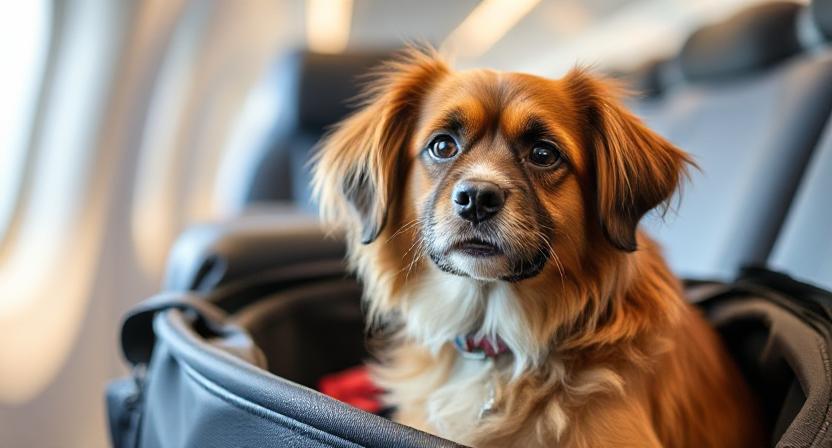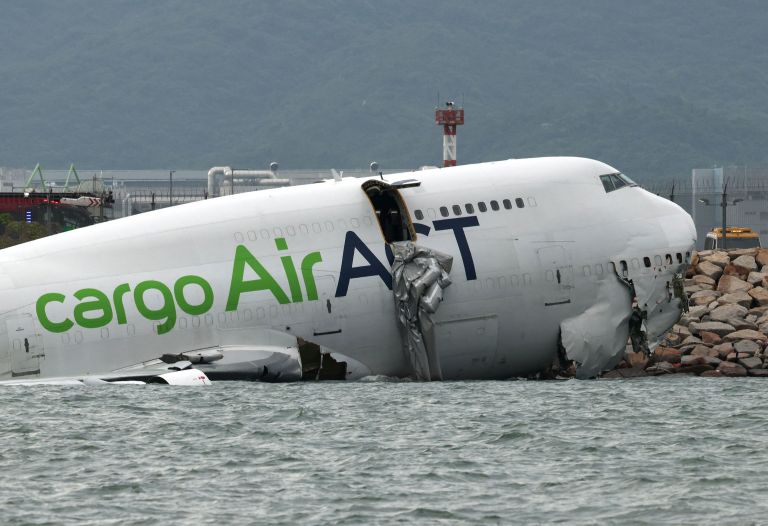Published on
October 20, 2025
In a major court decision, the European Union Court of Justice has ruled that pets are to be defined as “baggage” under the law of air transport, so they will also be governed by the same compensation rules as lost baggage. This ruling, in response to a 2019 case involving an escaped dog at Buenos Aires Airport, not only settles a court case but also highlights a change in the attitude of the airline sector and tourism industries towards the transport of animals.
The Legal Case: How a Lost Pet Sparked Major Change
The case began when a passenger traveling from Buenos Aires to Barcelona with Iberia Airlines lost their pet dog after it escaped from its carrier at Buenos Aires Airport and was never found. The airline offered only the compensation allowed under the Montreal Convention of 1999, which regulates liability for lost or damaged luggage but did not cover pets specifically. The passenger demanded €5,000 in compensation for the lost pet, which led to the case being referred to Spain’s national court and ultimately the EU Court of Justice.
The Court’s decision affirms that pets, although living beings, are classified under air transport law as baggage, meaning they are covered by the same compensation rules that apply to inanimate objects like suitcases and luggage. This is a groundbreaking ruling, as it provides clarity on the legal framework governing the transportation of pets by air and ensures passengers have the same rights for their pets as they do for their baggage.
Compensation for Lost Pets: Same Legal Framework as Luggage
Under the Montreal Convention, airlines are liable for lost or damaged baggage up to a certain amount, and this now extends to pets. The EU Court of Justice ruled that while the term “baggage” traditionally refers to inanimate objects, the inclusion of pets as baggage reflects a broader understanding of personal property. This means that if a pet goes missing or is damaged during air travel, compensation is capped by the same limits set for lost luggage.
While this ruling provides much-needed legal clarity for pet owners traveling internationally, it also raises important questions about adequate compensation for pets that hold significant emotional or monetary value, especially if they are lost or harmed in transit.
Improved Animal Welfare and Safety Standards
Alongside the clarification of compensation rules, the EU Court of Justice also emphasized the importance of airlines adhering to strict animal welfare and safety standards. Airlines must ensure that pets are transported safely, securely, and humanely, with the appropriate precautions taken to prevent incidents such as the Buenos Aires Airport escape. The ruling reinforces the responsibility of airlines to improve pet transport procedures and to meet international animal welfare standards, offering greater reassurance to pet owners who wish to travel with their animals.
This part of the ruling has important implications for the tourism industry, especially in countries where pet-friendly tourism is growing. Airlines that fail to comply with animal safety regulations could face not only legal consequences but also reputational damage, as more and more travelers seek destinations and transportation providers that are safe and accommodating for their pets.
The Growing Demand for Pet-Friendly Tourism
The tourism industry is increasingly acknowledging the growing demand for pet-friendly travel options, driven by a rise in pet ownership and human-animal bonds. As pet travel continues to grow globally, many countries and airlines are adjusting their policies to cater to this market. According to recent statistics, 35% of pet owners prefer to travel with their pets rather than leaving them behind, and 41% of travelers in the EU believe that airlines and tourism providers should make more efforts to facilitate the movement of pets.
Countries like France, Germany, and Italy have already introduced policies to make airports and hotels more pet-friendly, with dedicated pet areas and amenities for travelers flying with their animals. This legal ruling from the EU Court of Justice adds an extra layer of confidence to pet owners considering international travel, knowing that their pets are legally recognized as baggage under air transport law, with clear guidelines for compensation in case of loss.
How the Ruling Impacts Pet-Friendly Tourism
This EU Court ruling is expected to have a far-reaching impact on the broader tourism sector, especially as the demand for pet-friendly services increases. By legally classifying pets as baggage, the ruling indirectly promotes pet-friendly tourism, encouraging airlines, hotels, and other tourism providers to expand their offerings for travelers with pets.
- Airlines will likely face increased pressure to improve pet transport facilities, including more comfortable and secure carriers, better handling procedures, and clearer policies on compensation for lost or damaged animals.
- Hotels, too, will be motivated to adapt by offering more pet-friendly accommodations, recognizing that travelers now have legal rights for their pets during travel, which could translate into more demand for their services.
- Tourist destinations around the world will also need to recognize that pet tourism is a growing trend. Offering pet-friendly activities, tourist attractions, and even animal care facilities will become essential to meet the needs of this new wave of travelers.
Implications for European and Mediterranean Tourism
In regions like the Mediterranean, where countries such as Greece, Italy, and Spain are major travel destinations, the decision could further drive tourism growth. These countries are already popular for pet tourism, attracting travelers who want to enjoy their vacation alongside their pets in scenic locations. With the new EU Court ruling, these destinations can expect an even larger influx of visitors traveling with their pets, as pet owners feel more confident that their pets will be treated as baggage under air travel law, with clear compensation rules in place.
For Mediterranean countries, which are also popular summer destinations, the ruling could lead to an increase in year-round tourism as pet owners might feel encouraged to visit these countries even outside peak seasons. Pet-friendly accommodations, airports, and tourist attractions could become a market differentiator, setting these regions apart as premier destinations for pet lovers.
A Shift Toward Pet-Friendly Travel and Tourism
EU Court of Justice’s decision is a turning point in the development of air transport and tourism law, offering much-needed legal protection and rights to compensation for pet owners. With airlines, tourism operators, and destinations positioning their services to meet the increasing demand for pet travel, the decision is set to propel the pet tourism industry, as well as benefiting both the travel sector and pet owners themselves.
By guaranteeing that pets are held as baggage under aviation law, with options for compensation, this decision makes legal protection better for pet travelers and promotes more sustainable and inclusive tourism practices in Europe and elsewhere.



